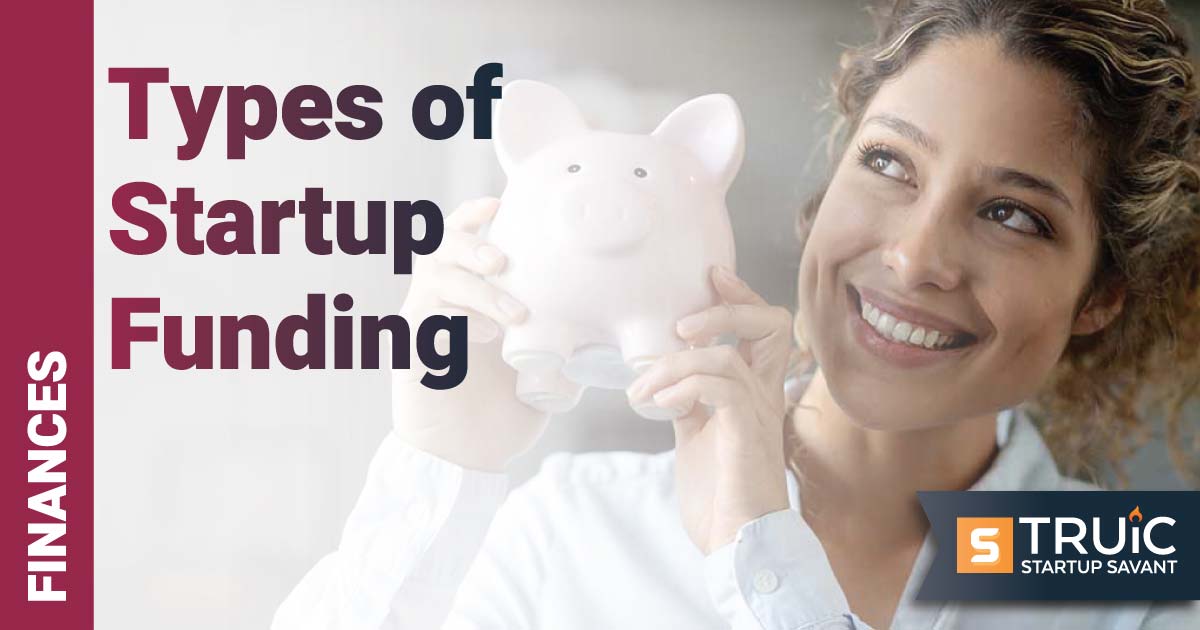What Questions Do Investors Ask Startups?

Last Updated: By TRUiC Team
Starting up a new venture is an exciting journey often filled with potential and promise. However, for many startups, securing sufficient capital to fuel their growth is an important yet elusive step. Investors are one of the best sources of this much-needed capital, but they’ll likely ask some probing questions before they part with their money.
Investors primarily want to know if your startup has what it takes to succeed and provide a good return on their investment. They'll evaluate everything from your management team's capabilities to your product's market potential. Knowing what questions they'll ask isn't just key to crafting your responses; it also can help you ensure your startup is robust and ready to succeed.
Common Questions Investors Ask Startups
Founders looking for funding must anticipate the questions investors may ask. Having ready answers not only demonstrates your expertise and awareness of potential hurdles, but also increases your chances of securing the investment you need.
Investors want to know about your team's expertise, your target market's size, and your product or service's potential to solve real problems. They'll also want to see evidence of market demand as well as understand your business model and revenue projections in detail.
Coming prepared with data-backed evidence of predictable revenue growth, a well-thought-out marketing strategy, and clearly defined business milestones can make a positive impression. More importantly, being transparent about potential risks and having plans to mitigate them can show potential investors you’re adaptable and forward-thinking.
Product & Market
The ability to distinguish yourself from the pack is incredibly important. Investors aren't just looking for a unique idea; they're trying to find an ambitious vision backed by a solid understanding of the market landscape. It's not about simply identifying a market gap. You need to show you know how to fill that gap effectively and, more importantly, the scope of the gap’s potential for growth and profitability.
Understanding market size and growth potential is one half of the equation. Investors want to understand your startup’s unique selling proposition (USP). They also want to evaluate if your product or service can solve a tangible customer problem and if there’s a genuine demand for it. Differentiating factors (e.g., a novel technology, superior customer experience, or an innovative business model) can powerfully demonstrate a startup’s potential to carve out its niche in the marketplace.
Here are some common product- and market-focused questions:
- What problem are you solving, and why is it important?
- What makes your product or service unique?
- Who are your main competitors, and what sets your product apart from them?
- Can you provide evidence of demand for your product/service among your target audience?
- What is the current market opportunity size?
- Could you please explain how your product or service works and its value proposition to customers?
Business Model & Monetization Strategy
Beyond a startup’s concept, investors are equally — if not more — concerned with how that company will turn a profit. Without a solid monetization strategy, even the most groundbreaking ideas can falter. Investors are eager to see that startups have a clear understanding of their business model and a well-defined plan for generating revenue.
It's not enough to offer a fantastic solution to a real-world problem. Startups also need to clearly articulate how they plan to monetize their solution. This requires demonstrating concrete strategies for maintaining consistent cash flow while remaining competitive and sustainable in their chosen market. The role of a viable revenue model can't be overstated. It should perfectly align with the company's value proposition and provide a reliable roadmap to help the startup not just survive, but thrive.
Here are some common questions in this category:
- How do you make money?
- What is your revenue model?
- Could you elaborate on your monetization strategy?
- How do you project your revenue growth over the next five years?
- What is your target market, and how do you plan to reach potential customers?
- What's your plan for achieving your business goals?
Team
Your team plays a key role in the dynamics of your startup. As the name suggests, a startup is literally at the start of its journey and the people on its team fuel this journey forward. Time and again, investors note they invest just as much in people as they do in ideas. This explains why they're particularly keen on understanding the backgrounds and expertise of the founding team, their competencies, and their ability to execute on the business plan.
The nature of startups involves change and uncertainty, which requires a knowledgeable and adaptable team. They don't just need to keep up with their market and competitors, they also must demonstrate grit and resilience in navigating their venture through uncharted territories.
There’s no denying that a team's dynamic is a key piece in determining a startup's success. A team that can leverage its collective skills and experience while staying focused on business goals makes for an enticing prospect in an investor's eyes. That's why they're also interested in understanding how the team plans to scale the company while overcoming any potential challenges along the way.
Here are some common team-focused questions:
- What are your backgrounds and relevant experience?
- Why did you start this company, and what drives your passion for it?
- What's the team's adaptability to changes and capacity to manage crises?
- How do you evaluate your team's competence?
- What are your outsourcing strategies and hiring plans?
- Do you have a strong team that can execute your business plan?
Legal & Operational
Investors usually carry out a comprehensive appraisal of a company's operations while observing the competence of its team, the effectiveness of its outsourcing strategy (if there is one), and the robustness of its hiring plans. This type of operational scrutiny is important because it directly impacts the feasibility of the business model and, ultimately, its long-term sustainability.
From a legal perspective, investors will dig into a company's compliance with industry regulations and existing laws. This involves a critical examination of contracts, intellectual property (IP) rights, litigation risks, and more. Investors want to ensure all business activities are within the legal framework to avoid any future litigation difficulties that could pose significant financial and reputational risks. The answers to these legal and operational inquiries allow potential investors to make an informed decision on whether to invest or not.
Here are some common questions for this category:
- Do you have any patents, trademarks, or other intellectual property protection in place?
- What are your plans for supply chain management and manufacturing processes?
- What are the key risks facing your business, and how do you plan to overcome them?
- What's your operational plan to use the potential funding?
Growth & Scaling
Investors typically also will examine a startup’s growth and scaling potential meticulously when considering an investment. They want to understand not only the startup's current standing, but also its potential for exponential growth. To do this, they’ll dive into how the founding team plans to scale up operations and consider their expertise, grit, and ability to adapt to change.
Investors also will assess the size of the market a startup addresses and its potential to generate significant returns. Because angel investors and venture capitalists may have different motivations and risk appetites, you must address this in your pitch.
Moving even further down the growth and scaling route, investors are interested in a startup's revenue growth and customer acquisition strategies. They'll compare this information relative to the requested funding amount and the company’s age to judge if the startup has a sustainable growth model. Expect to field questions around your startup’s customer lifetime value, acquisition costs, and marketing efficiency.
Investors also will examine your company's operations, the competence of your team, and your plans for hiring or outsourcing. They’ll want to know about the fundraising needs of your startup and how it plans to use those funds. It's all about demonstrating a clear path to scalability while overcoming potential barriers to growth.
Here are some common growth- and scaling-focused questions:
- Do you have a customer acquisition strategy in place?
- How do you plan to scale your company?
- Can you demonstrate predictable revenue growth?
- How do you analyze your customer lifetime value, acquisition costs, and marketing efficiency?
Exit Strategy
Investors often want to discuss a startup’s exit strategy in order to understand how they'll get a return on their investment. It's no secret that investors are in it for the profits, so they’re naturally curious about the founders' plans on delivering such returns. Whether it's an initial public offering (IPO) or an acquisition, the exit strategy should provide a clear roadmap for realizing their investment gains.
Here are some common questions for this category:
- What's your exit strategy to ensure I reap a good return on my investment?
- Are there any potential buyers for your company in the industry?
- How do you plan to increase the company's value for an eventual buyout or IPO?
- What time frame are you considering for your exit strategy?
- In the event of a merger or acquisition, how would that process likely be handled?
- What contingencies do you have in place if your initial exit strategy doesn't pan out?


